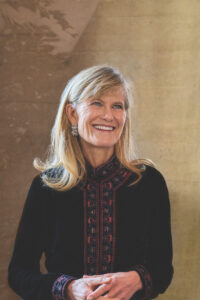Do You Have the Mindset for Super Productivity?
Read Time
6 min read
Posted on
November 8, 2015

One of the greatest leaps in productivity I ever achieved was directly caused by my first business going bankrupt. Well, technically my sandal company, Beachcomber Bills, didn’t go through bankruptcy. The financial splatter from the business failure was so complete the judge said we were too broke to go through bankruptcy.
My failure to pull that initially successful business out of a crash dive forced me to get very creative very fast. I woke up one morning in my newly rented house (because I lost the one I’d owned in the financial firestorm) with the new big idea. I started consulting for companies that were a lot like mine helping CEOs succeed where I had failed.
Another moment of peak productivity occurred when my mentor Stephen Covey, literally gave up trying to write Seven Habits of Effective People. He, along with two editors, had produced three manuscripts that just lacked the energy that his workshops were producing. My productivity breakthrough came when it dawned on me that a transcript of his daylong workshop could be polished into a manuscript that would become an all-time bestseller.
Here’s my point. Productivity that really counts is not so much about winning our daily battle to complete our tasks and respond to urgencies. No, if productivity is really about producing uncommon value then the most important capability we can master is the mindset that produces insight and the skill set to bring that breakthrough idea to life.
So let me emphasize my point. There’s a big industry that teaches people how to be productive. Productivity hacks are all over the Internet. And they work. I teach them all the time myself but not as stand-alone skills. A few years ago when I was creating a new presentation and productivity workshop called Work Like a Genius, my team and I looked at the brain science, behavioral psychology, and studies on human energy to create a science-based daily schedule that maximizes your physical, mental and emotional energy to consistently do great work.
But the big insight from the research is that the people who’ve really changed the world and lived the most interesting lives did not make their contribution primarily from the volume of tasks they completed. Rather, we admire them for the insights they brought to life that improved our lives.
The mindset for super productivity has been studied by a large group of researchers like Duke University’s Angela Duckworth and Stanford’s Carol Dweck. A distillation of this research reveals two essential inner conditions that drive super productivity.
People who are super productive are both discontent and confident. Research on human drive reveals that deep inner motivation comes from the self-knowledge of WHAT you really want that you are unwilling to live without. Confidence comes from knowing HOW you attack problems and overcome obstacles. Confident people don’t try to do everything themselves to accomplish a goal. They do what they are best at and recruit others to do whatever else needs to be done.
Angela Duckworth’s research emphasizes that deep discontent leads to creative persistence. Something she calls ‘grit,’ which is a mental and emotional mindset that drives you to continually develop new ways to overcome persistent obstacles. You literally wrestle a problem to death until you solve it.
Innovative solutions to great problems don’t come from just being dissatisfied with the status quo. You have to be very discontent. Just ask yourself this question. If your work and your life didn’t change too much over the next five years would that be okay? If it is, you may not be discontented enough to be self-inspired. So the first law of productivity is to get riled up over something you really want to change.
Be really clear that the outcome you’re seeking is what you really want. High-achieving people can get so seduced by the psychological payoff for problem-solving that they can become over-invested in achieving goals that don’t matter. Don’t let that happen to you.
Productive people are also self-aware of HOW they succeed. Your HOW consists of three things:
- How you act on your goals. Some people just visualize the outcome and start working. They’re confident they can figure it out as they go. Other people are planners. They create a plan with checklists and modify it as necessary. Ultimately both approaches must have flexibility built-in. Just be aware that to overcome the psychological resistance to start a project you need to understand whether your core orientation is ‘Doer’ or a ‘Planner.’ Both work.
- How you learn what you need to learn to excel. Some people prefer to study. Others want to ask experts and recruit their help. And some just like to plunge ahead using trial and error as rapidly as possible to learn what works. Once a project you start engages other people, it’s good to have all three types of learners on your team.
- How you best interact with people. Some people are natural collaborators. Others like to work independently. And some need to be in charge. Our research shows that interacting effectively with people requires the ability to inspire best efforts and align actions. The skills of inspiration and aligning group work are not natural to most people. If you’re going to be super productive these are vital skills to master.
Oh yes, there’s one more thing super productive people do.
Anytime you want to do something out of the ordinary you will soon find yourself being the captain of a boat surrounded by a sea of skepticism. As long as you keep the boat of your mindset watertight the toxic water of skepticism will not seep into your mind-boat and sink it.
Most people don’t fail… they give up.
I hope you’re really discontent. The world we have created is not the best we can do. If you are discontent use that energy productively. When you change your world the world changes…we all need the change only you can make.
Overview
One of the greatest leaps in productivity I ever achieved was directly caused by my first business going bankrupt. Well, technically my sandal company, Beachcomber Bills, didn’t go through bankruptcy. The financial splatter from the business failure was so complete the judge said we were too broke to go through bankruptcy. My failure to pull […]
AI-Generated Overview.






